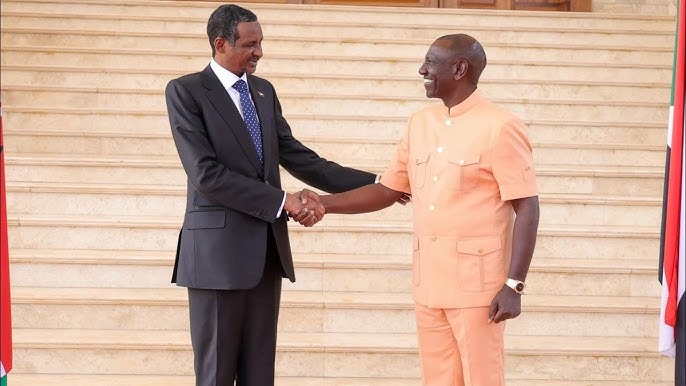On May 6, 2025, a cataclysmic event at Nyala Airstrip in southeastern Sudan laid bare the intricate web of geopolitical subterfuge and covert alliances that have long simmered beneath the surface of regional politics. The bombing of the airstrip, controlled by the Rapid Support Forces (RSF) and executed by the Sudan Air Force (SAF), claimed the life of Kenyan military pilot Captain George Nyamodi and obliterated a cargo plane carrying four Emirati crew members. This incident, far from an isolated tragedy, serves as a stark revelation of the clandestine machinations that intertwine state actors, rebel factions, and international powers in a relentless pursuit of power, resources, and influence.
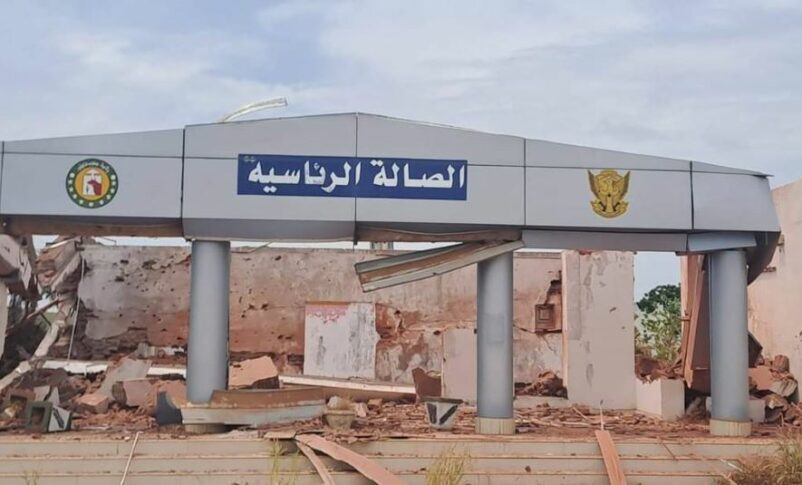
Image of the ruins of the Nyala Airport VIP lounge, bombed by the Sudan Air Force on 6th of May 2025
The Nexus of Power and Profit
At the heart of this conflagration lies a coalition of interests, with Kenya’s President William Ruto at its epicenter. Reports say that the RSF, a paramilitary group led by Mohammed Hamdan Dagalo, known as Hemedti, has benefited from financial and logistical support from a consortium of nations, including Kenya, the United Kingdom, the United Arab Emirates, Finland, Norway, Denmark, Sweden, Ukraine, and Uganda. This coalition, ostensibly unified by strategic imperatives, is accused of funneling resources to the RSF, enabling its dominance in Sudan’s volatile conflict landscape. The bombing of Nyala Airstrip, however, exposed the fragility of these covert operations, as the destruction of critical assets – both human and material – cast a harsh spotlight on their existence.
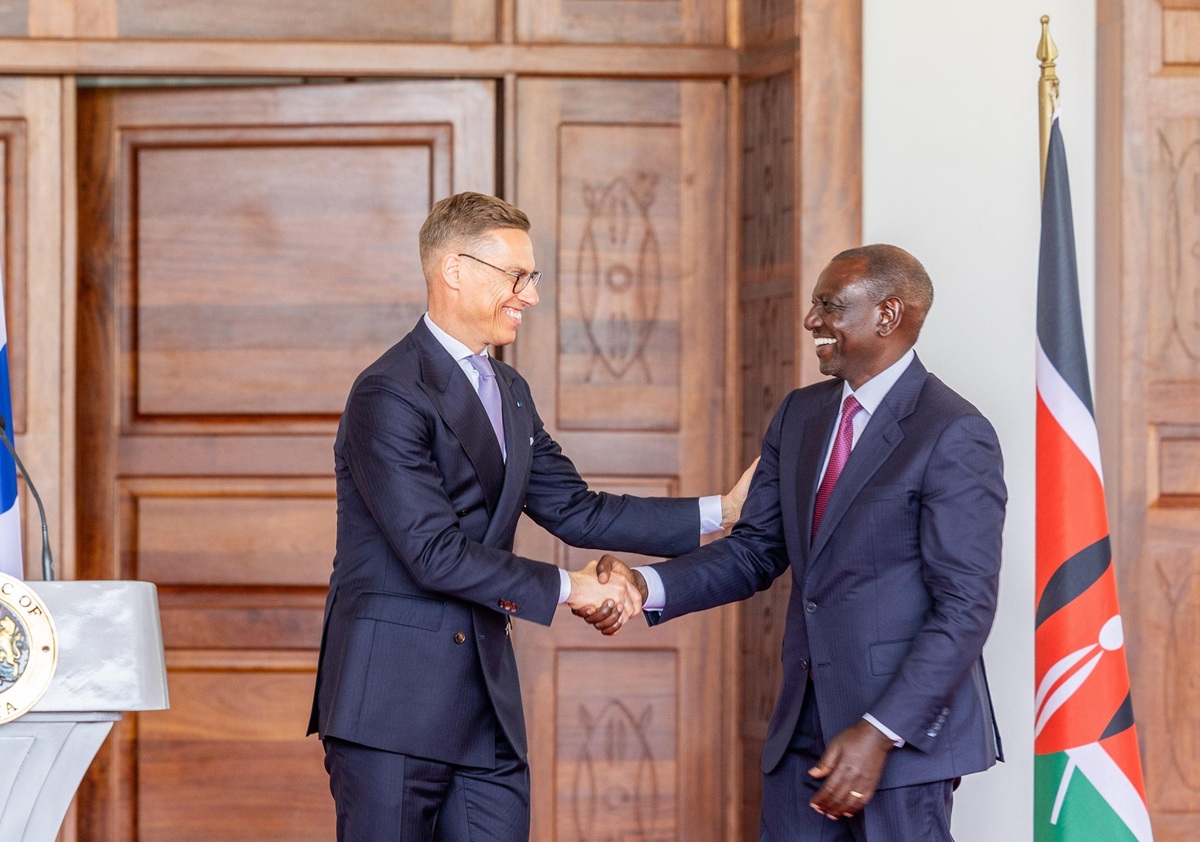
Finland President Alex Stubb meets Kenyan President William Ruto. The agenda of the visit was Sudan and how to smuggle gold
The cargo plane, laden with what sources describe as a consignment of weapons, underscores the transactional nature of this conflict. Allegations swirl that these arms, sourced from Uganda and supplemented by Emirati supplies, were intended to bolster the RSF’s military capabilities. Yet, the true significance of this cargo extends beyond mere weaponry. It represents a tangible manifestation of a broader strategy: the exploitation of Sudan’s turmoil for geopolitical leverage and economic gain, with gold smuggling emerging as a pivotal mechanism in this shadowy enterprise.
The Gold Trade and Its Discontents
Sudan’s gold, a coveted resource in global markets, has long been a linchpin of illicit financial networks. Reports from Sudanese and Kenyan media, including the incisive columns of Altayyar Newspaper’s Shama’el Alnoor, have illuminated the murky nexus between Kenya’s political elite and Sudan’s rebel factions. Alnoor’s exposé details a clandestine visit by President Ruto – then Kenya’s Vice President to Sudan’s gold-rich Atbara region, to facilitate the transport of substantial sums of money under the guise of official travel. The aircraft linked to Sudanese businessman Usama Dao’od’s Dal Group or, alternatively, the Sudanese police, underscores the opacity of these operations.
Alnoor’s reporting, corroborated by Alsudani Aldawliyya, reveals a meticulously orchestrated scheme. Ruto’s arrival via Khartoum’s Presidential Lounge and subsequent journey to Atbara, bypassing conventional diplomatic protocols, raises profound questions about the complicity of Sudanese authorities – civilian and military alike. The absence of official commentary from Khartoum, coupled with Atbara’s municipal confirmation of the visit, amplifies suspicions of a covert agenda. Was this a unilateral maneuver by Sudan’s military apparatus, or did it reflect a broader collusion with foreign actors? The demand for an m investigation back then, as articulated by Alnoor, resonates as a clarion call for transparency in a region shrouded in secrecy.
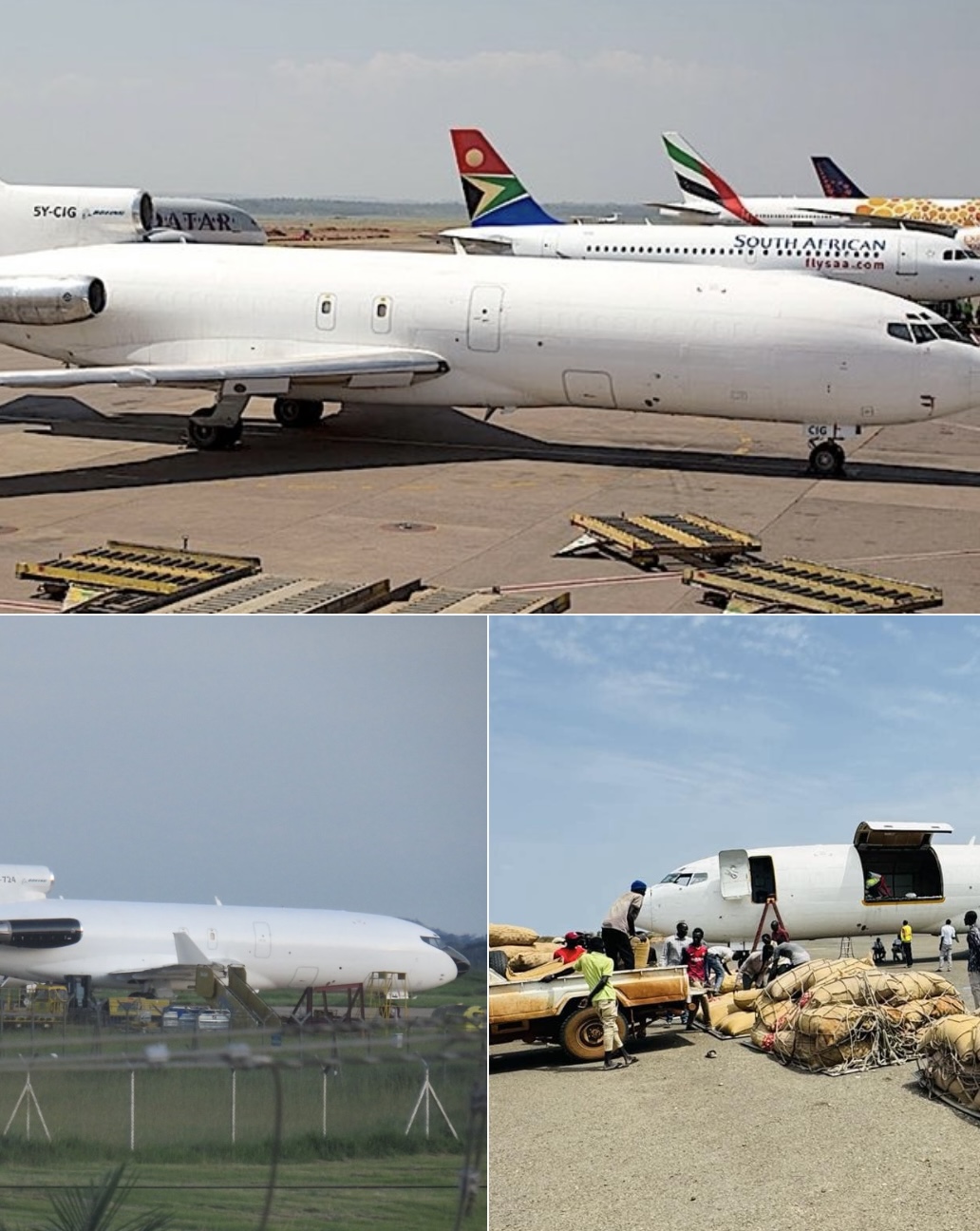
The aircraft hit by SAF airstrikes at Nyala Airport in Sudan wa a Boeing B727-30C w/ reg. AVIONS-1001 with South Sudan Air Force being the last officially known operator. It formerly had a Tajikistan and Kenyan reg. EY-724/5Y-CIG
Central to these allegations is the role of UAE-based entities in laundering Sudan’s gold. Companies such as Capital Tap Holding, Capital Tap Management, Capital Tap General, Creative Python, Al Zumouroud and Al Yaqoot Gold & Jewellers, and Al Jil Al Qadem – sanctioned by the U.S. Treasury Department – form a labyrinthine network managed by Sudanese national Abu Dharr Abdul Nabi Habiballa Ahmmed. These entities, intricately linked to Hemedti and his brother Algoney, facilitate the RSF’s financial operations, channeling proceeds from gold sales into military procurement. The involvement of Alkhaleej Co Ltd and Horizon Advanced Solutions further complicates this tapestry, illustrating the globalized nature of conflict financing.
Kenya’s Duplicitous Diplomacy
In Nairobi, the government’s response to these revelations has been marked by vehement denial. Prime Cabinet Secretary and Foreign Affairs Minister Musalia Mudavadi, pressed by Citizen TV’s Yvonne Okwara, categorically rejected claims of Kenyan involvement in Sudan’s crisis. Dismissing Captain Nyamodi’s mission as unrepresentative of state policy, Mudavadi sought to distance Kenya from accusations of gold smuggling and rebel support. Yet, the persistence of these allegations, buttressed by reports of Ruto’s longstanding ties to Hemedti – dating back to the era of ousted Sudanese President Omar al-Bashir – casts a long shadow over Kenya’s diplomatic posturing.
The specter of domestic political maneuvering further complicates this narrative. Following the June 2024 Gen Z protests and the impeachment of Deputy President Rigathi Gachagua, hardliners within Ruto’s inner circle, including Oscar Sudi and Farouk Kibet, orchestrated a scheme to arm and train Kalenjin youth in Kenya’s Rift Valley. Under the direction of retired Major Abel Rotich, a figure implicated in the abductions and extrajudicial killings of hundreds of young Kenyans between June 2024 and February 2025, this militia was prepared for a post-2027 election conflict to secure Ruto’s re-election. The weapons, sourced from Uganda through opposition figure Kiiza Besigye, were later betrayed to Ugandan President Yoweri Museveni as Ruto sought to mend strained relations.
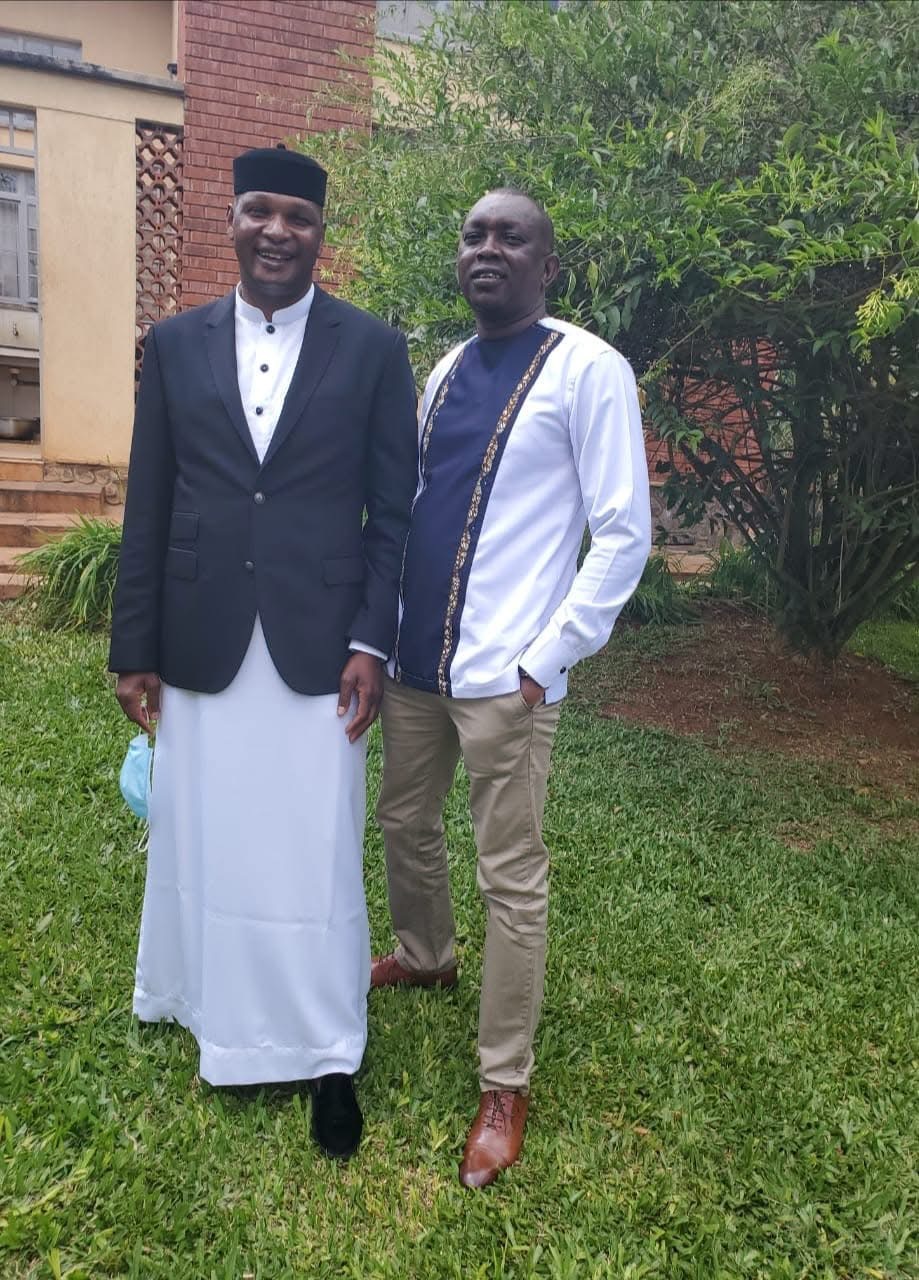
Bosom buddies: William Ruto’s private secretary Farouk Kibet and Kapseret MP Oscar Sudi accused of planning a post election violence in 2027
A Desperate Act of Self-Preservation
The unraveling of this plot came to a head when Ruto, informed by his confidant and outgoing International Criminal Court prosecutor Karim Khan of an impending resignation amid personal allegations, moved swiftly to dismantle the militia training camp. The weapons, now a liability in the face of potential ICC scrutiny, were hastily dispatched to Nyala Airstrip – a desperate bid to obscure evidence of a planned genocide to rig the 2027 Kenyan election. The SAF’s bombing of the airstrip, however, obliterated this gambit, destroying the arms and exposing the intricate web of complicity that bound Nairobi, Khartoum, and Dubai.
The Broader Implications
This saga lays bare the pernicious dynamics of geopolitics, where state and non-state actors exploit conflict for personal aggrandizement. The RSF’s ascendancy, fueled by foreign patronage and illicit gold trade, exemplifies how resource-rich nations become battlegrounds for proxy wars and economic predation. Kenya’s role, cloaked in denials, underscores the duplicity of statecraft, where public disavowals mask private complicity. The involvement of Western and Gulf powers further illustrates the globalized nature of these conflicts, with nations leveraging Sudan’s chaos to secure strategic footholds and economic windfalls.
As Shama’el Alnoor poignantly demanded, an investigation is imperative – not only to unravel the specifics of Ruto’s Atbara sojourn but to expose the broader architecture of exploitation that sustains Sudan’s turmoil. The deaths at Nyala Airstrip are not merely casualties of war; they are indictments of a system where power and profit supersede human lives. For the international community, the challenge lies in dismantling these networks of avarice, holding complicit actors accountable, and restoring integrity to a region ravaged by the machinations of the powerful.
